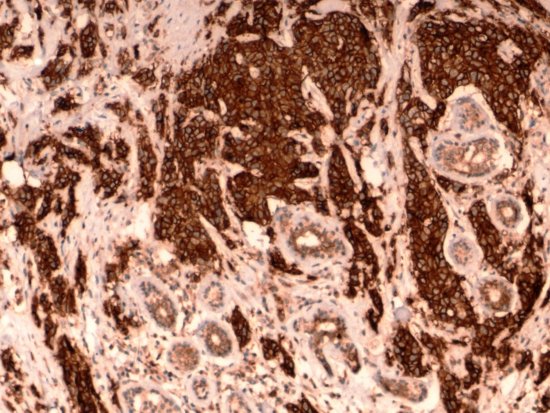
Sandhya Sundaram
Sri Ramachandra Medical College & Research Institute, India
Title: Over expression of C326 (EpCAM) in carcinoma breast and its clinical correlation
Biography
Biography: Sandhya Sundaram
Abstract
Statement of the Problem: The epithelial cell adhesion molecule (EpCAM) is a type I transmembrane protein of 314 amino acids that is localized to the basolateral membrane in the majority of normal epithelial tissues.EpCAM has been demonstrated to be a calcium-independent homophilic cell adhesion molecule. Recent studies have also demonstrated a role for EpCAM in cell signaling and carcinogenesis. EpCAM is overexpressed in a variety of epithelial tumours such as gastric cancer, oesophageal cancer and prostate cancer The main purpose of the study was to determine the expression pattern of EpCAM across molecular subtypes of carcinoma breast in the South Indian population and to correlate its expression with other clinical parameters. immunohistochemical studies were performed on 50 cases of breast carcinoma of different molecular subtypes. This included luminal A, Luminal B, Her 2 Neu & triple-negative subtypes. The expression was scored using the standard scoring system A correlation was drawn with detailed clinicopathological annotation and available outcomes data. We observed strong EpCAM expression in 42 out of 50 cases. EpCAM expression varied significantly in the different intrinsic subtypes. Expression pattern was membranous.EpCAM expression is higher in TNBC & Her 2 Neu type of Breast Carcinoma. Higher expression was seen in node-positive tumours. EpCAM expression has critical and important implications in subsets who would benefit from targeted therapies.
Images: Breast carcinoma cells showing strong EpCAM IHC
Positivity compared to normal glands which show very faint staining


